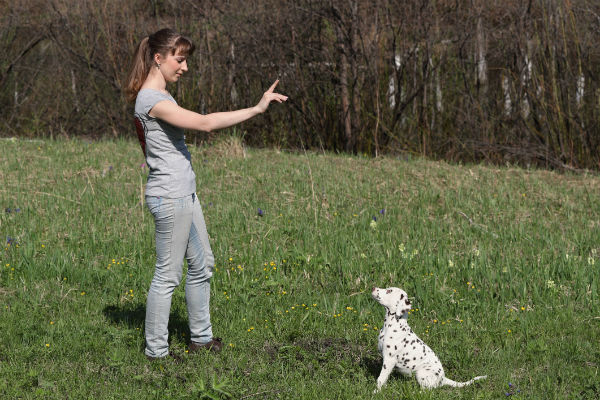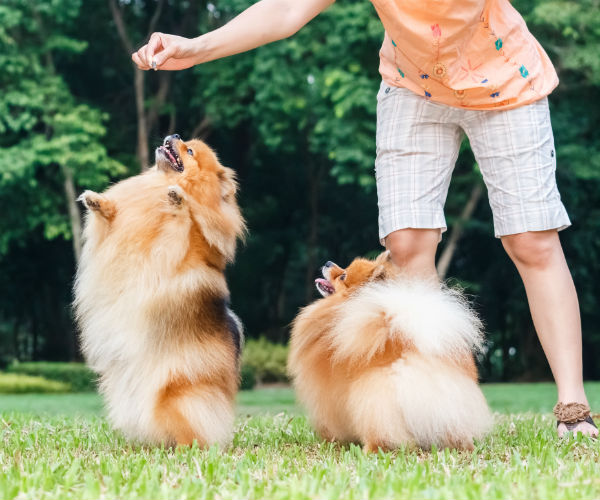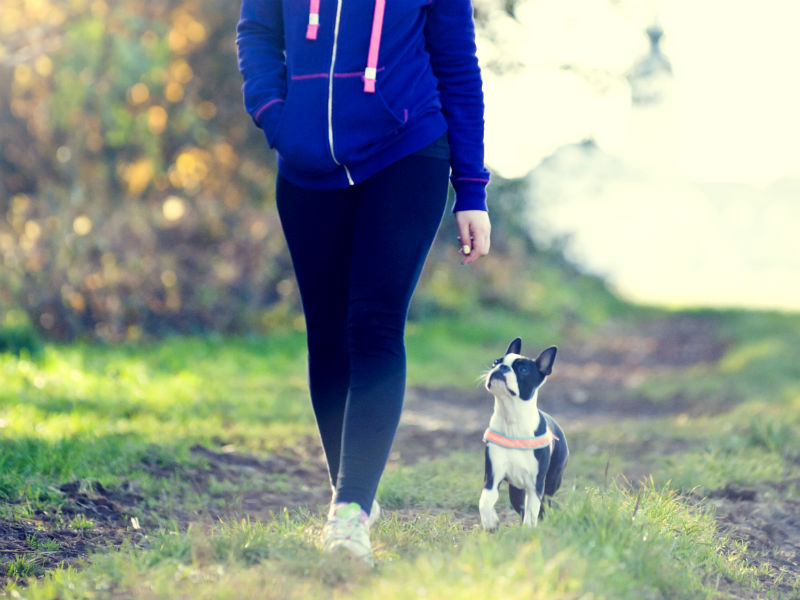1. Understand that a puppy is an infant dog – not a miniature adult. Adjust your expectations accordingly, considering his physical and mental limitations. Before you know it, he will be grown up!
2. Puppy-proof your house with baby gates, a crate, and/or a pen. Any time the puppy is not directly supervised, he should be in a safe place where he can’t get into trouble. Provide appropriate safe toys for him to chew. Nobody would think of giving a human toddler total freedom in a home, and puppies need the same careful supervision. Eliminating opportunities for accidents and destructive behavior will get you through the puppy phase with most of your stuff intact! This helps make sure that bad habits never get a chance to take hold.
3. Dogs are not born understanding English. The new puppy you brought home two days ago has no idea what the word “no” means. Instead of expecting him to drop whatever it is he’s doing, show him what you want him to do instead.
4. Learn about dog body language. Your dog may not be able to talk, but he can tell you how he feels. This is a good place to start learning what he’s saying: /content/entertainment/articles/how-to-read-dog-body-language/

5. Train with high-value treats. You will be amazed at how much harder your dog will work for a tiny piece of chicken breast, cheese, or liver, compared to even premium store-bought treats. Those may work in distraction-free settings, but when the job gets more difficult, you need to bring out the good stuff. Training treats should be soft, so you don’t have to wait for Rover to chew before continuing the lesson.
6. Catch your dog being good. It’s easy to get caught up in scolding when your puppy is getting into trouble, but rewarding him out of the blue for being good lets him know he’s doing the right thing.
7. He’s a dog, not a human. It’s their “doggyness,” not what we think of as their similarity to humans, that makes them so lovable. Dogs don’t think like humans. They do not plot acts of revenge; they are just trying to do what makes them feel happy or safe.
8. Dogs do the things that we reinforce. Those behaviors you don’t like? We usually have ourselves to thank. Owners inadvertently reinforce all kinds of undesirable things, from excessive barking at the doorbell to counter surfing. Keep leaving food within reach on the counter, and your dog will learn that it’s worth his while to check.

9. Learn to be quick with treats and praise. If the treat comes more than a few seconds after your pup has done what you’ve asked, he has no idea what he did to earn it, or you may inadvertently reward the wrong behavior. He’s happy to take it, but you failed to reward what you were teaching.
10. Always be happy when your dog comes to you, whether you called him or not. A common owner complaint is that the dog does not come when called. Never punish your dog when he comes to you, no matter what he did before. Call him in a happy, playful tone and reward big when he gets to you, with treats, a toy, or praise.
11. Keep a positive attitude. If you are getting upset, your dog knows it!
12. Provide the right amount of exercise and mental stimulation. Bored dogs get into trouble. For young puppies, mental stimulation is just as tiring as physical exercise and is safer for their growing bodies.
Got the hang of it? If you’re interested in taking your dog training even further, be sure to check out AKC’s Canine Good Citizen Program.

